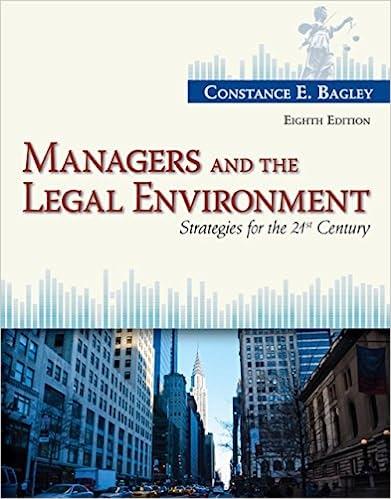Intellectual Ventures LLC (IV) sued Capital One Financial Corporation, alleging infringement of patents covering various online banking
Question:
Intellectual Ventures LLC (IV) sued Capital One Financial Corporation, alleging infringement of patents covering various online banking services. Capital One asserted the defense of patent misuse by IV and filed three counterclaims: (1) monopolization under section 2 of the Sherman Act, (2) attempted monopolization under the same provision, and (3) unlawful asset acquisition in violation of section 7 of the Clayton Act.
IV is a patent assertion entity (PAE), also known as a patent troll, which holds about 80,000 patents and applications, including 3,500 relating to banking technology. Capital One asserted that (1) the only commercial purpose of IV is to engage in the "submarine hold-up" of innovators like Capital One and (2) IV knows or should know that most of its 3,500 banking patents are "irrelevant, invalid, not infringed, and/or unenforceable." Capital One further asserted that IV's business model was to threaten the assertion of thousands of patents in a "never-ending series of costly and disruptive patent infringement lawsuits-pummeling its victims into submission." What are the two elements that must be shown to prove monopolization under section 2 of the Sherman Act? What arguments should Capital One make, and will it prevail? Why or why not? A violation of section 7 of the Clayton Act occurs when one company acquires the assets of another company where the effect of that acquisition substantially lessens competition or tends to create a monopoly. How does that provision apply to the acquisition of patents? What should Capital One argue, and will it prevail on this claim? Assume that ulterior or bad motives do not deprive a patent holder of its right to enforce a patent and that the patent misuse defense (discussed in Chapter 11) "cannot be based on 'misuse in the air.'" Will Capital One succeed on this defense? Why or why not?
Capital One "candidly concede[d]" that it implemented its technological solutions based "on the assumption that its potential legal exposure for patent infringement [could] be ignored, or later managed economically," because a single patent holder would not have the resources to enforce its patents against the commercial bank. Is Capital One, in essence, complaining "that IV's strategy to enforce patents in an economically sensible way has upended its business expectations and business calculus"? Is Capital One in a better "ethical" position to defend its use of the patents than IV is to allege infringement of the patents?
Step by Step Answer:

Managers And The Legal Environment Strategies For The 21st Century
ISBN: 9781285860374
8th Edition
Authors: Constance E. Bagley





